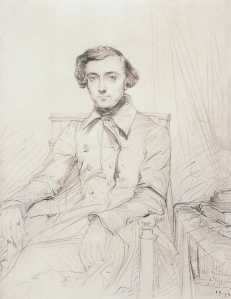 Officially can ‘pauperty’ not be used as a word, ‘pauper’ [‘pɑupər] means ‘poor’ in Latin. Most likely Sir William Shakespeare transformed the word to ‘pover’ and ‘poverty’. When looking at ‘Pauperism’ it can mean the general state of ‘being poor’ or poverty. In some cases people are poor on purpose. Most cases people not ment to be poor, but lost health, jobs or spiritual welfare. Far out the biggest poor maker is war and other conflicts. Most wars come out of a desire to take what is not theirs or denied by others.
Officially can ‘pauperty’ not be used as a word, ‘pauper’ [‘pɑupər] means ‘poor’ in Latin. Most likely Sir William Shakespeare transformed the word to ‘pover’ and ‘poverty’. When looking at ‘Pauperism’ it can mean the general state of ‘being poor’ or poverty. In some cases people are poor on purpose. Most cases people not ment to be poor, but lost health, jobs or spiritual welfare. Far out the biggest poor maker is war and other conflicts. Most wars come out of a desire to take what is not theirs or denied by others.
Most monks in every religious system choose to be poor. Most of them live by what people give them. This can only work if there are not to many of them in a certain area. Another way of making this work is that a monastery produces food, drinks and needed materials. Most monasteries in Europe did transformational development, they invested in peoples creative thinking and workman’s craft to overcome poverty.
They helped in agricultural ways, illiterate the natives and grew herbs to cure diseases. And they kept on doing so until this day. Some monasteries became famous beer brewers. [1884 -La Trappe] Not always is beer a good cure for the economy, but the rules in these abbey’s are quite strict on consumption. One at every meal, and one during the evening conversations.
Mémoire sur le paupérisme.
 Alexis de Tocqueville wrote this book in 1835 and said private or public aid is not helpful at all. Most systems work that way nowadays and we notice their bankruptcy nowadays. According to Tocqueville the standard policy makes poor people into captives of the system. Employers and municipalities prevent people from entering their area’s. But on the other hand it is a human right in these countries to receive aid. So people start to be creative to get into the welfare.
Alexis de Tocqueville wrote this book in 1835 and said private or public aid is not helpful at all. Most systems work that way nowadays and we notice their bankruptcy nowadays. According to Tocqueville the standard policy makes poor people into captives of the system. Employers and municipalities prevent people from entering their area’s. But on the other hand it is a human right in these countries to receive aid. So people start to be creative to get into the welfare.
 During the big recession in Argentina, banks closed their doors and companies had to sent their labour men home. In other countries companies advised their employees to become self-employed. “We call you when we need you … don’t call us.” In Argentina employees broke open the gates and doors of their former workplaces, started up the machines the known so well and started producing again. The only thing was: the company was repossessed by everybody. This rebooted the economy. [Study: las Emprasas Recuperedas en la Argentina, 2010]
During the big recession in Argentina, banks closed their doors and companies had to sent their labour men home. In other countries companies advised their employees to become self-employed. “We call you when we need you … don’t call us.” In Argentina employees broke open the gates and doors of their former workplaces, started up the machines the known so well and started producing again. The only thing was: the company was repossessed by everybody. This rebooted the economy. [Study: las Emprasas Recuperedas en la Argentina, 2010]
It seems modern communism, but Alexis de Tocqueville wrote it long before as the solution against poverty. Communism comes from the Latin word communis, which means “shared” or “belong to all” But … de Tocqueville was a liberal thinker … he was also known for his novel ‘Democracy in America’.
